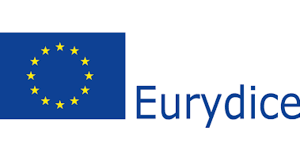Study abroad
European Union countries are responsible for their own education and training systems. The EU has a support function: it sets common objectives and promotes the exchange of good practices.
The Eurydice information network on education in Europe was established by the European Commission and Member States in 1980 to increase cooperation in the education sector by improving knowledge of systems and policies. Since 2014 it has been part of Erasmus+, the European program for education, training, youth and sport.

The CIMEA NARIC (National Academic Recognition Information Centres) network connects the information centers designated by the national authorities of the member countries of the European Union.

The ENIC network (European Network of national Information Centres on academic recognition and mobility) connects the national information centers designated by the national authorities of the member countries of the European Cultural Convention of the Council of Europe and of the Europe Region of UNESCO. The network promotes the recognition of foreign qualifications, international academic mobility and the application of the Lisbon Convention on the recognition of academic qualifications.

As an EU citizen, you have the right to attend any EU university under the same conditions as local students. However, admission conditions vary greatly between countries and countries
university. Regardless of other entry conditions, EU countries cannot deny you access to education or training because of your nationality. Special rules apply to fees and scholarships. It is advisable to contact the Ministry of Education of the country of origin to receive further information on the scholarships granted to citizens who decide to study abroad.
Ploteus is a portal where you can find information on training opportunities in Europe. It allows you to carry out a cross search between the system and the level of education you intend to achieve, the type of
course, program or training you are interested in, the language you wish to use in studying and the country where you intend to study with information relating to: the cost of living, school fees, how to find accommodation, the legal context and other general information , further contacts to contact for further information and useful advice, exchange programs and scholarships available in European countries.

Thanks to the European Qualifications Framework it is easier to compare different national qualifications using a common framework for exams and education levels. The framework aims to help Europeans move abroad for study or work. With the Copenhagen process, European countries (including all EU member states), trade unions and employers work together to improve vocational and educational training. One result of this collaboration is the European Credit System and Quality Assurance Network, which help you study and work abroad.
The European Language Passport is a self-assessment tool for your linguistic skills and certifications which is part of the "Europass portfolio", a set of five documents to clearly and easily understand your skills and qualifications in Europe. Language certification is a formal certificate, with international value, of the level of knowledge of a language, issued by a recognized certification body. It constitutes the tool for identifying and officially recognizing skills in using a foreign language.
Euroguidance Italy, which operates at Isfol, is an organization promoted by the European Commission - DG Employment, Social Affairs and Inclusion and by the Ministry of Labor and Social Policies - DG for Active Policies and services for work and training in order to to promote mobility for study and training reasons between the countries of the European Union.

Erasmus+ is the European Union program for Education, Training, Youth and Sport 2014-2020; combines and integrates all the financing mechanisms implemented by the European Union until 2013: the
Lifelong Learning Program (Comenius, Erasmus, Leonardo da Vinci, Grundtvig), Youth in Action, the five international cooperation programs (Erasmus Mundus, Tempus, Alfa, Edulink and the
bilateral cooperation program with industrialized countries).
It also includes Jean Monnet Activities and includes support for Sport for the first time.
Erasmus+ helps organize student and doctoral student exchanges between program countries and partner countries.
By studying abroad with the Erasmus+ programme, you can improve your communication skills, languages and intercultural skills and acquire soft skills that are particularly appreciated by future employers.
Find out more about the benefits of exchanging abroad.
The integrated program allows you to obtain an overview of the grant opportunities available, aims to facilitate access and promotes synergies between different sectors by removing barriers between the various types of projects; it also wants to attract new actors from the world of work and civil society and stimulate new forms of cooperation.
The Marie Skłodowska-Curie program supports the professional prospects and training of researchers from all scientific disciplines, in particular by helping them to study and work in different countries and sectors.
A useful link to further explore the topic of "Studying abroad"
 Regione Veneto
Regione Veneto

